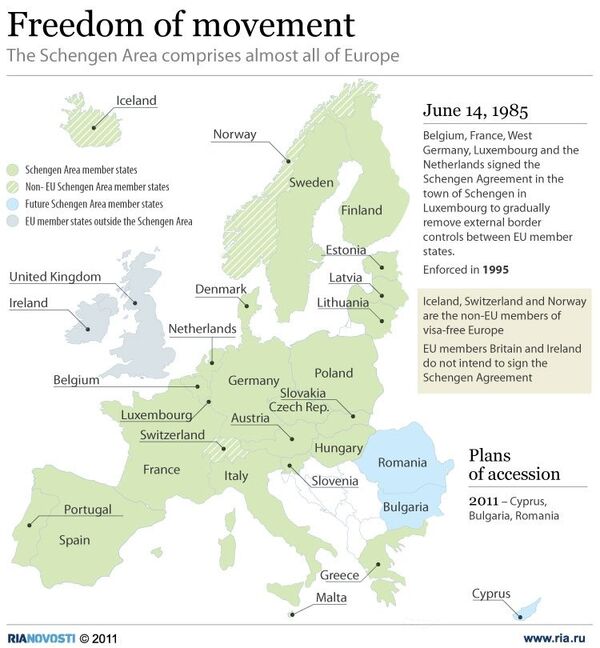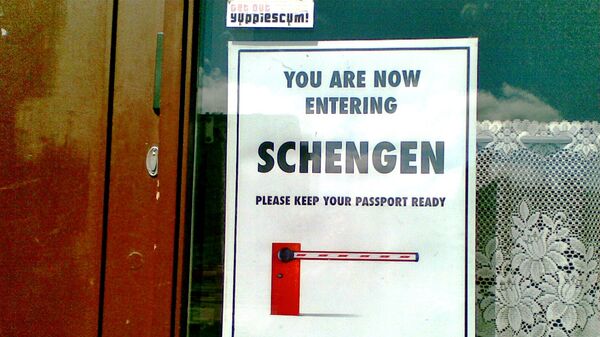Freedom of movement has been an ideal of the European Union ever since its inception. The Schengen zone allows residents in the 26 European countries to move between these countries with no passport checks, it also allows visiting tourists to treat the area as one country for visa purposes.

Several Schengen members have since last September utilized an EU law, allowing for temporary border controls to be put in place in Schengen areas, in attempts to more closely monitor the flow of migrants throughout Europe.
Previous EU laws allowed member states to implement border checks for a period of 8 months under certain circumstances. However earlier in May, eight EU member states, Denmark, Sweden, Austria, Belgium, France and Germany, wrote to the European Commission asking that the temporary measures be extended for 6 months and that other member states in the Schengen zone be given permission to introduce border checks for up to 2 years.
"To preserve free movement in EU & save #Schengen, we must secure our external borders" https://t.co/6PyjmmHoWZ pic.twitter.com/s0waJKfOwh
— ALDE Group (@ALDEgroup) May 30, 2016
The European Commission have now granted extensions to some border controls due to the European migration crisis being deemed a situation of emergency.
Several European think tanks have over the past years warned of the implications of rolling back the Schengen agreement.
Most recently, France Stratégie warned that the impact on trade could result in costs of over US$110 million over 10 years. Their report also notes the impact that the re-introduction of internal borders could have on tourism and cross-border commuters. The free travel zone is widely considered to play a major role in the high tourist numbers across the region.
5. #VisaFreeAfrica, Europe receives highest number of tourists globally coz of Schengen free visa, it's a very good precedent to learn from
— Nyemazi Bosco (@BoscoNyemazi) May 30, 2016
In 2015, Greece was threatened with expulsion from the Schengen zone amid fears that their own external border controls were not strong enough, leading to an influx of refugees and illegal immigrants entering the zone and traveling to other EU countries.
If the current internal border controls being put in place by the eight Schengen zone members are extended further, it could pose a much wider question over the Schengen zone's existence.
Discussing migration & refugees position, now at #EMIFA16. Free movement & #Schengen draft proposals also on agenda. pic.twitter.com/CVW9M9XwAC
— Petros Fassoulas (@PetrosFassoulas) May 27, 2016
However, measures currently being considered by the European Parliament to strengthen external borders could offer light relief to those who fear the Schengen zone is at risk. On Tuesday (31 May), the European Parliament's all-party committee for Home Affairs and Civil Liberties set out its demands for the new European Border and Coast Guard.
MEP Péter Niedermüller, a spokesperson for the Socialists and Democrats group within the European Parliament, said:
"The establishment of the new agency will be a positive step to help in better managing migration to the EU, it is not a 'game-changer' in terms of the overall migration policy as much more remains to be done in terms of the Common European Asylum rules, relocation, resettlement and the beefing up of the European Asylum Support Office (EASO)."
Did you miss press conf by @Pabriks on EU Border & Coast Guard? LIVE REPLAY available → https://t.co/M9vAvVTzhohttps://t.co/KVxys6fgMm
— EP Audiovisual (@europarlAV) May 31, 2016
Though whether this may lighten the influx of refugees is unknown. The EU's Migration Commissioner, Dimitris Avramopoulos, stated in early May that despite any extensions to temporary border controls, "the aim is that, by the end of this year, the Schengen zone will be fully normalized."


